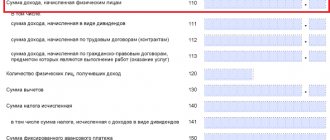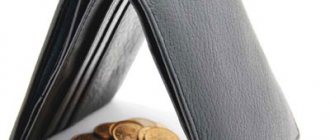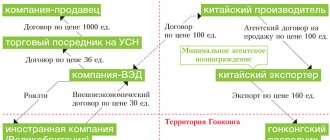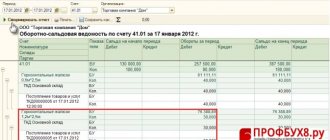An organization using a simplified account (with the object “income minus expenses”) purchased goods for resale. At what point can she take into account the amount of input VAT on goods in expenses: at the time of payment or as they are sold? The commented letter from the Russian Ministry of Finance reflects the point of view of officials on this issue. (LETTER OF THE MINISTRY OF FINANCE OF THE RF dated 08/23/13 No. 03-11-06/2/34691)
Position of officials
Financiers recalled that, according to paragraphs 2 and 3 of Article 346.11 of the Tax Code of the Russian Federation, organizations and entrepreneurs using the simplified taxation system are not recognized as payers of value added tax.
At the same time, Article 346.16 of the Tax Code of the Russian Federation defines a list of expenses for which “simplified” subjects who have chosen “income reduced by the amount of expenses” as an object of taxation reduce the income received.
Expenses for paying the cost of goods purchased for further sale are taken into account when determining the tax base as they are sold (subclause 2, clause 2, article 346.17 of the Tax Code of the Russian Federation).
Thus, according to officials, the amounts of input VAT paid by a taxpayer applying the simplified system on goods purchased for further sale are taken into account as expenses as these goods are sold.
A similar point of view was expressed by financiers earlier (letters dated 09.24.12 No. 03-11-06/2/128, dated 01.20.10 No. 03-11-11/06, dated 12.25.08 No. 03-11-05/312) .
Alternative position
However, there is another point of view on this issue.
Its supporters do not argue with the fact that taxpayers who have chosen the “income minus expenses” object write off the cost of goods sold as they are sold (subclause 2, clause 2, article 346.17 of the Tax Code of the Russian Federation).
That is, to take into account such costs, two conditions must be met:
1) pay for the goods;
2) sell it to the buyer.
But, in their opinion, this rule does not apply to input VAT on purchased goods.
Taxpayers have the right to take it into account at a time when paying for valuables to the supplier.
The thing is that Article 346.16 of the Tax Code of the Russian Federation (namely clause 1), which contains a closed list of permitted expenses for “simplified” subjects, divides the total cost of the goods into two independent types of expenses.
The first is named in subparagraph 23 of paragraph 1 of Article 346.16 of the Tax Code of the Russian Federation. These are the costs of paying for the cost of goods purchased for further sale, as well as costs associated with the acquisition and sale of these values, including the costs of their storage, maintenance and transportation.
The second type of expense (subclause 8, paragraph 1, Article 346.16 of the Tax Code of the Russian Federation) is “the amount of value added tax on paid goods (work, services) purchased by the taxpayer and subject to inclusion in expenses.”
Considering that, according to subparagraph 3 of paragraph 2 of Article 346.17 of the Tax Code of the Russian Federation, the amounts of taxes and fees are recognized as expenses in the amount actually paid by the taxpayer, supporters of this position propose to write off input VAT on goods as a tax precisely on this principle.
We carry out sales without VAT
“How can you escape from VAT when selling goods?” – accountants have wondered more than once. And it’s not in vain. Such an opportunity was found.
Although our legislators recently reduced the VAT rate, the desire to avoid this tax among company managers has not weakened. Accountants also know about it. The main thing is to place the accents correctly. Since sales are taxed, the task is to give away the goods, receive money for it, and so that this is not considered a sale.
And then a bright head came up with the idea: to sell the goods under the guise of a contribution to the buyer’s authorized capital. According to Article 39 of the Tax Code, this operation is not a sale, and therefore you will not have to pay VAT on it.
So, the company contributed to the buyer’s authorized capital. The next move is her withdrawal from the founders. The seller will only receive his share in monetary terms. The law allows this (see, for example, Article 94 of the Civil Code of the Russian Federation).
So in this case, the seller can increase the price of the goods by the 18 percent VAT rate, without having to share the proceeds with the state. Now the details.
Step-by-step strategy
Let’s say right away that this combination is applicable if the buyer does not need a VAT tax deduction. In other words, he does not pay this tax at all. The buyer can be an organization on a “simplified” or “imputed” basis or exempt from tax under Article 145 of the Tax Code.
The fact is that the scheme veils the implementation, and accordingly there can be no talk of any invoice. Therefore, the tax cannot be offset. When the buyer does not pay VAT, it makes no difference to him whether the tax amount is included in the invoice or not. Let's look at the diagram step by step.
Step 1. The seller contributes the goods to the authorized capital of the buyer company. At this stage, pay special attention to documenting the operation. Immediately before shipping the goods, the following must be drawn up:
- minutes of the meeting of shareholders (participants) on the entry of your organization into the founders of the purchasing company;
- memorandum of association;
- a new edition of the charter of the purchasing company indicating the new founder.
In the new charter, it is advisable to literally write the following: “to a company participant who has submitted an application to leave the company, the actual value of the share is paid within five days from the date of filing such an application.” Otherwise, according to the law on limited liability companies, the buyer has the right to give him the money for his share right before the end of six months of the next year (Article 26 of the Law).
Changes in the composition of the founders must be registered with the “native” tax office.
To do this, provide her with the above documents, an application in form No. P13001, certified by a notary, as well as a receipt (payment order) for payment of the state duty for 2000 rubles.
Within five days, inspectors are required to make changes to the state register. So, now the seller company is a full-fledged founder of the buyer company. They agreed upon the amount of the commodity contribution to the authorized capital and recorded it in the constituent documents. In fact, it constitutes the cost of the product along with the markup. That is, if you have a product with a cost of 50 rubles, then, by agreement with your partner, you can make it as a contribution of 200 rubles. Moreover, these 200 rubles will appear in the tax and accounting records of the receiving party. There is only one limitation. If the deposit amount exceeds 20,000 rubles and the recipient of the property is a limited liability company, its price must be confirmed by an independent appraiser. This provision is contained in Article 15 of the Federal Law of February 8, 1998 No. 14-FZ. When the recipient is a joint-stock company, the appraiser is involved regardless of the amount of his contribution (Article 34 of the Federal Law of December 26, 1995 No. 208-FZ “On Joint-Stock Companies”).
Step 2. The seller leaves the founders. To do this, he submits an application to leave the society. The exit of the founder must also be registered with the tax office. How to do this is described above.
The fact that the selling company will receive its share in the charter in money and not in goods must be indicated in the protocol. In this case, there is no need to calculate the actual value of the share. After all, the value of net assets during its short “founding” did not change.
Where do taxes go?
What do we have in the end? The company sold the goods but did not pay VAT. The goal has been achieved. Previously, it was not recommended to use such a scheme, since officials demanded that tax be paid to the budget, which had previously been accepted for offset on the property being sold. They say that it ceases to be used in activities subject to VAT. The company had to fight for its interests in court. The Supreme Arbitration Court reasoned with the tax authorities. After the release of the resolution of the Supreme Arbitration Court of the Russian Federation dated November 11, 2003 No. 7473/03, debates on this issue no longer arose.
As for income tax, you will have to pay it. In this case, the tax base will be considered the difference between the actual cost of the property and the amount of money that the seller received after ceasing to be the founder (clause 4 of Article 251 of the Tax Code of the Russian Federation).
Note that taxable profit will arise precisely after the seller leaves the founders. Not earlier. Roughly speaking, if you contribute property worth 2 rubles as a contribution to the authorized capital of 100 rubles, this will not be considered income. This is enshrined in paragraph 1 of Article 251 of the Tax Code. For clarity, we will show how the circuit works using an example.
Example
Aktiv decided to sell its production equipment for RUB 10,620,000. (including VAT – RUB 1,620,000). Its initial cost is 6,000,000 rubles, the residual cost is 4,000,000 rubles. “Passive” does not pay VAT.
Situation 1. Equipment is sold as usual.
“Passive” transfers 10,620,000 rubles, from which “Active” will pay VAT to the state in the amount of 1,620,000 rubles. The seller's income tax will be:
(RUB 10,620,000 – RUB 1,620,000 – RUB 4,000,000) x 24% = RUB 1,200,000
The total amount of tax payments of “Asset” is equal to:
RUB 1,620,000 + 1,200,000 rub. = 2,820,000 rub.
It turns out that the income from the sale of equipment will be:
RUB 10,620,000 – 2,820,000 rub. – 4,000,000 rub. = 3,800,000 rub.
Situation 2. Equipment is sold as a contribution to the authorized capital.
In order to interest the buyer to participate in this scheme, Aktiv decided to reduce the price of the goods to 10,000,000 rubles. So, he invests equipment in the authorized capital of Passiv. By agreement with an independent appraiser, the contribution was valued at RUB 10,000,000.
The Aktiva accountant made the following entries in accounting:
Debit 01 subaccount “Disposal of fixed assets”
Credit 01
– 6,000,000 rub. – the initial cost of the equipment is written off;
Debit 02
Credit 01 subaccount “Disposal of fixed assets”
– 2,000,000 rub. – the amount of accrued depreciation of equipment is written off;
Debit 58-1
Credit 01 subaccount “Disposal of fixed assets”
– 4,000,000 rub. – the transfer of equipment is reflected as a contribution to the authorized capital (at residual value);
Debit 58-1 Credit 91-1
– 6,000,000 rub. – the excess of the cost of equipment agreed upon by the founders over its residual value is taken into account.
Next, “Aktiv” leaves the founders and receives its share (10,000,000 rubles) in money. He does not pay VAT. The amount of income tax from leaving the founders will be:
(10,000,000 rub. – 4,000,000 rub.) x 24% = 1,440,000 rub.
Income from the sale of equipment is equal to:
10,000,000 rub. – 4,000,000 rub. – 1,440,000 rub. = 4,560,000 rub.
As you can see, despite the fact that the price of the equipment was reduced by 620,000 rubles, Aktiva’s tax payments decreased by 1,380,000 rubles. (2,820,000 – 1,440,000). And this is more than in the first situation.
We see that the opportunity not to pay VAT entails certain inconveniences for the purchasing company: complicated documentation, the lengthy nature of the procedure for purchasing goods, the need to register constituent changes. However, as noted in the example, all these “corners” can be smoothed out with some discount on the product. In addition, the disadvantage of the combination is that it is unlikely that it will be possible to sell the goods in this way many times.
Periodic joining and leaving of the founders will look, at least, strange. This scheme is best used once, maximum twice, when the organization sells a very expensive product.
Moreover, there must be a trusting relationship with the buyer, because the seller can “dump him” and not leave the founders.
V. Serednyakov, auditor Material provided by the magazine “Practical Accounting”, No. 4 2004
Where is the truth?
The dispute between officials and specialists essentially boils down to the following fundamental issue.
What is the VAT included in it in relation to the price of a product: its integral part or just a tax? Initially, the literal wording of the legislation on value added tax and the very method of its payment created the illusion that between two business entities (seller and buyer), when paying VAT as part of the price of a product, a relationship of a public nature arises.
In other words, the seller in this situation receives from the buyer not part of the price, but tax (VAT).
Therefore, calculations of the amounts of value added tax included in the price of the contract must be regulated by the norms of tax legislation, and the market component of the price - by the norms of civil law.
This erroneous point of view was also held by arbitration courts for a long time, including the Supreme Arbitration Court of the Russian Federation.
However, after the release of the resolutions of the Presidium of the Supreme Arbitration Court of the Russian Federation dated September 22, 2009 No. 5451/09 and July 21, 2009 No. 3474/09, we can say with complete confidence that judicial practice on the issue under consideration has fundamentally changed.
Public legal relations regarding the payment of VAT to the budget are between the taxpayer, that is, the person selling goods (work, services), and the state. The buyer of goods (works, services) does not participate in these relations - the amount of VAT presented to him for payment is part of the price payable to the seller under the contract.
Therefore, in our opinion, the position of the financial department regarding the amounts of input VAT presented to the “simplified person” for payment in the cost of goods purchased for further sale should be considered more fair.
Why do companies on OSNO flatly refuse to buy anything from simplifiers?
The whole reason lies in VAT.
All organizations and individual entrepreneurs on the general taxation system are VAT payers. When selling their goods or services, they are required to add VAT to the price and then pay the tax to the state budget. For such companies, there is a tax deduction on OSNO, using which the VAT payable can be reduced. The tax amount can be reduced by the amount of “purchase” VAT, i.e. the one paid when purchasing goods or services. For example: we purchased goods for resale for 10,000 ₽ + 2,000 ₽ paid VAT, in total we transferred 12,000 ₽ to the supplier.
Then they sold the goods for 20,000 ₽ + VAT 4,000 ₽, the buyers transferred 24,000 ₽ to us.
Amount of VAT payable = 4000–2000 = 2000 ₽.
When a company buys goods from you without VAT, it does not have a tax deduction, and the state needs to transfer the amount of VAT not 2000 ₽, but the entire 4000 ₽.
It turns out that it is really unprofitable for an OSNO company to work with you, and they often ask special regime officers to issue an invoice with VAT. But then you have an additional obligation to transfer tax to the budget and submit a VAT report, which is accepted only in electronic form. In addition, tax authorities insist that the entire amount including VAT be included in the income of the simplified tax system, and when paying VAT to the budget, you do not have the right to take it into account as expenses.
Submit reports in three clicks
Elba - online accounting for individual entrepreneurs and LLCs. The service will prepare reports, calculate taxes and free up time for useful things.
Try 30 days free Gift for new entrepreneurs A year on “Premium” for individual entrepreneurs under 3 months
What should taxpayers do?
If the taxpayer’s choice contradicts the explanations of the Russian Ministry of Finance, this will most likely lead to tax disputes.
But, as practice shows, most taxpayers prefer not to take risks and act in accordance with official explanations. This is confirmed by the almost complete absence of arbitration practice.
There is only a resolution of the Federal Antimonopoly Service of the West Siberian District dated March 17, 2009 No. B F04-1471/2009 (2200-A03-19).
It follows from it that the arbitrators supported the taxpayer in a dispute regarding the accounting of input value added tax on goods purchased and paid for, without waiting for their sale.
Although, as the old Russian proverb says, every cloud has a silver lining. In some cases, following the official point of view may be beneficial for taxpayers.
These include, for example, a situation where the “simplified” person has not yet sold the goods at the time of the transition from the “simplified” taxation system to the general taxation system and will continue to use it in transactions subject to VAT. Then, after the transition to the general system, he can accept input tax on goods for deduction from the budget (clause 6 of Article 346.25 of the Tax Code of the Russian Federation).
Both the Ministry of Finance of Russia agrees with this (letter dated December 29, 2012 No. 03-07-11/563) and the arbitrators (resolution of the Federal Antimonopoly Service of the Ural District dated July 13, 2010 No. Ф09-5355/10-С2).
If, by the time of the transition to the general regime, the amounts of input VAT have already been taken into account by the simplified tax system as part of expenses when calculating the tax base for the single tax, then the right to deduct them after the transition to the general system will be lost.
What methods of saving VAT are used when purchasing goods from the population?
When companies purchase goods and materials directly from the public, this usually concerns used cars, agricultural products, secondary raw materials, homemade products, flowers, etc.
In terms of income tax, there is no particular savings to be achieved here. Unless, of course, you artificially inflate the cost of purchased goods and materials on paper, paying the individual only part of this money. But not every person will agree to this. But with VAT during the subsequent sale of such values, various variations are possible.
In general, the resale of goods purchased from the public is quite burdensome from a VAT point of view. The organization has to pay this tax on the full cost of the goods sold, without being able to deduct it from the acquisition costs. After all, individuals are not payers of value added tax.
When, during subsequent sales, VAT can only be paid on the difference
When selling agricultural products, processed products and cars purchased from individuals who do not pay VAT, this tax is not paid on the full amount of revenue, but only on the difference. It is calculated based on the sales price including VAT and the purchase price. Such rules are provided for in paragraphs 4 and 5.1 of Article 154 of the Tax Code of the Russian Federation. In this case, the tax is calculated at the calculated rates of 10/110 and 18/118 (clause 4 of article 164 of the Tax Code of the Russian Federation).
True, there are a number of restrictions for agricultural products. It should not belong to the category of excisable goods and should be named in the List of Agricultural Products (approved by Decree of the Government of the Russian Federation dated May 16, 2001 No. 383). In particular, these conditions are met by livestock, poultry, meat, dairy products, eggs, fish, honey, grain, vegetables, hay, etc.
Sometimes more VAT is reimbursed from the budget than is necessary to pay into it.
During the subsequent resale of agricultural products and cars, a situation may arise when the seller indicates in the invoice VAT on the full cost of the goods, and not on the difference. In this case, officials order that the entire amount of tax specified in the document be paid to the budget (Resolution of the Federal Antimonopoly Service of the Central District dated 02/06/08 No. A09-8975/06-30-20).
With this requirement, controllers are trying to stop the savings scheme. After all, the end buyer, having received an invoice with an inflated amount of VAT, submits it for deduction. And since the seller paid tax to the budget only on the difference, an additional amount will be withdrawn from the budget. Friendly companies take advantage of this.
The tax authorities' demands can be challenged. According to paragraph 5 of Article 3 of the Tax Code of the Russian Federation, no one can be obligated to pay taxes established in a manner different from that determined by the Tax Code of the Russian Federation. And its provisions indicate that tax is charged on the difference, regardless of the amount indicated on the invoice. In addition, Article 166 of the Tax Code of the Russian Federation requires that VAT payable to the budget be calculated based on the tax base, and not on issued invoices.
There are also court decisions in favor of taxpayers (decrees of the federal arbitration courts of the West Siberian from 09.17.08 No. F04-5554/2008 (11392-A46-14), Volgo-Vyatka from 12.20.06 No. A29-8335/2005A, Ural from 16.08 .06 No. Ф09-5627/06-С2 districts). But there are not so many of them to predict the court's decision in a specific situation.
When selling processed products, tax can be calculated on the difference.
Let’s assume that a company has purchased milk and is selling cottage cheese. Here the question arises: do the norms of paragraph 4 of Article 154 of the Tax Code of the Russian Federation apply to such processed products?
The Russian Ministry of Finance believes not. They say that the VAT base in this case is determined based on the full cost of goods sold (letter dated January 26, 2005 No. 03-04-04/01). Sometimes the courts agree with this (resolutions of the Federal Arbitration Court of the Central District dated 10.08.08 No. A36-528/2008, dated 06.08.09 No. F04-2975/2009 (6522-A03-42) (upheld by the decision of the Supreme Arbitration Court of the Russian Federation dated 28.09. 09 No. VAS-12507/09)).
But most decisions contain different conclusions. The courts recognize that VAT on the sale of products obtained by the company as a result of processing is calculated from the difference (decrees of the federal arbitration courts of the Ural Federal Arbitration Court dated 05/08/09 No. Ф09-2751/09-С2, West Siberian Court of 07/31/07 No. Ф04-5101/2007 (36750-A03-19) districts).
The Federal Arbitration Court of the Volga District in its resolution dated August 3, 2006 No. A65-531/2006-SA2-11 on this matter concluded that paragraph 4 of Article 154 of the Tax Code of the Russian Federation contains ambiguity. And all doubts are interpreted in favor of the taxpayer (clause 7, article 3 of the Tax Code of the Russian Federation).
Sergei Tarakanov, 3rd class adviser to the State Civil Service of the Russian Federation, gave another argument in favor of calculating the tax only from the difference. According to him, this is indicated by the word “purchased,” which in paragraph 4 of Article 154 of the Tax Code of the Russian Federation refers to the words “agricultural products” and not to the words “processed products.” Otherwise, the legislator would have used the word “purchased”.
If purchased from an individual with individual entrepreneur status.
According to officials, entrepreneurs for the purposes of applying Article 154 of the Tax Code of the Russian Federation do not qualify as individuals (letter dated December 7, 2006 No. 03-04-11/234, resolution of the Federal Arbitration Court of the Central District dated October 8, 2008 No. A36-528/2008). Consequently, for products purchased from individual entrepreneurs, the preferential norms of Article 154 of the Tax Code of the Russian Federation cannot be applied. And the tax must be calculated on the entire sales price.
However, this can be argued. In paragraph 4 of paragraph 2 of Article 11 of the Tax Code of the Russian Federation it is directly stated that entrepreneurs are individuals. And the fact that they carry out entrepreneurial activities without forming a legal entity does not deprive them of the status of an individual.
Another argument from officials is that in order to apply the benefit, an individual must not be a VAT payer. But if an entrepreneur uses “simplified taxation” or “imputation”, then he is not recognized as such (clause 2 of article 346.11, clause 4 of article 346.26 of the Tax Code of the Russian Federation). This means that the conditions of Article 154 of the Tax Code of the Russian Federation are met. Sergei Tarakanov, 3rd class adviser to the State Civil Service of the Russian Federation, agrees with this. However, we did not find any judicial practice on this issue.
The commission agreement will allow you to pay VAT only on the markup
Sometimes, instead of a sales transaction, companies enter into commission agreements with individuals. The markup at which the company plans to resell the goods is recognized as the commission agent's remuneration. Only on this amount does he pay income tax and VAT.
The company can register the subsequent sale of goods on its own behalf (clause 1 of Article 990 of the Civil Code of the Russian Federation). This will avoid complications in paperwork. In addition, the types of products resold are not limited in any way.
But for a citizen this method is not particularly convenient. Firstly, he will be able to receive money only after the commission agent sells the goods. Secondly, all proceeds from the resale will be recognized as his income, including the amount that the commission agent will keep for himself as a reward. Consequently, personal income tax, which an individual pays independently, will increase compared to ordinary purchase and sale. Although individuals have benefits when selling a number of goods. In particular, income received from the sale of:
- livestock, rabbits, nutria, birds raised on private farms, as well as wild animals and birds;
- livestock products, crop production, floriculture and beekeeping;
- furs, wild animal meat and other products obtained by individuals during amateur and sport hunting;
- wild berries, mushrooms and other non-timber forest resources.
Such benefits are established by paragraphs 13, 15, 17 of Article 217 of the Tax Code of the Russian Federation. As a result, the tax burden for individuals and for the commission agent company will be reduced to a minimum.
With the help of pawnshop services, paying VAT is completely avoided
In practice, taxpayers have found a way that eliminates VAT altogether. Although it is quite risky and does not guarantee safe tax savings.
Its essence lies in the fact that instead of purchasing goods from the population and subsequent sale, they formalize a pawnshop transaction. That is, goods from an individual are accepted as collateral and a cash loan is given to him for this. A month after the end of the loan term, if the individual does not return the money (and it does not), the pledged object can be sold (clause 1 of article 10, clause 1 of article 12, clause 2 of article 13 of the law of July 19, 2007 No. 196-FZ “On pawnshops”).
Tax savings are achieved due to the fact that the sale of pledged property is not recognized as a sale for VAT purposes for the following reasons. First, the mortgagee does not have title to the property. This follows from the provisions of paragraphs 3 and 5 of Article 2 of Law No. 196-FZ. And implementation, according to Article 39 of the Tax Code of the Russian Federation, is precisely the transfer of ownership.
Secondly, the purpose of such a sale is not to receive income by the mortgagee organization, but to repay the lender’s claims to the borrower (Clause 1, Article 13 of Law No. 196-FZ). There is also judicial practice in favor of this position (decrees of the federal arbitration courts of the Volga region dated 05.03.06 No. A06-5894U/4-5/05, dated 07.22.04 No. A72-245/2004-8/114, North Caucasus dated 31.08. 04 No. Ф08-3492/2004-1466А districts).
As for the mortgagor, who retains ownership at the time of sale, he will also not pay VAT. After all, pawnshop transactions can only be concluded with individuals (clause 1 of article 2, clause 1 of article 7 of law No. 196-FZ). And the latter are not VAT payers (clause 1 of Article 143 of the Tax Code of the Russian Federation).
This method has a significant limitation. In particular, an individual can only pledge property that belongs to him and is intended for personal consumption (Clause 3, Article 2 of Law No. 196-FZ). These could be cars, computers and other household appliances, jewelry, etc. Objects purchased by an individual for explicit resale (for example, a batch of washing machines) are not suitable for pawning in a pawnshop. Although in practice, documentary evidence of ownership and purpose for personal use is rarely found in pawnshops.
Non-compliance with the law does not prevent operations from being classified as pawnshops.
Pawnshop activity has its own characteristics. The first nuance is that a pawnshop is prohibited from engaging in other business activities other than providing short-term loans to citizens, storing things, as well as consulting and information services (Clause 4 of Article 2 of Law No. 196-FZ). But, as practice shows, when resolving a tax dispute, judges are more interested in how the pawnshop transaction is formalized according to the documents, and not in the legality of its implementation.
Such documents may be the charter of the organization, which states that one of the types of activities is pawnshop. It could also be an order on the amount of interest for using loans, property pledge agreements, pledge notes, etc. Thus, in one of the cases, the company, in addition to the specified documents, presented balance sheets and order journals. After analyzing them, the court concluded that one of the company’s activities is pawnshop. And he decided the dispute in favor of the organization (resolution of the Federal Arbitration Court of the Volga District dated 05/07/08 No. A12-14685/07-C51).
The second nuance is that the name of the company must contain the word “pawnshop” (Clause 2, Article 2 of Law No. 196-FZ). But even his absence is of little concern to the courts. In the already mentioned resolution No. A12-14685/07-C51, pawnshop activity was recognized by Capital LLC. In the resolution of the Federal Arbitration Court of the Ural District dated 05/05/10 No. Ф09-3129/10-С2 – from the company “Gold-Invest”.
When returning to the borrower, there is no difference between the sale price and the VAT debt.
The pledgee may receive income from the sale of property that will exceed the amount of the claim secured by the pledge. He is obliged to return such a difference to the borrower (clause 3 of Article 350 of the Civil Code of the Russian Federation, clause 4 of Article 13 of Law No. 196-FZ, determination of the Supreme Arbitration Court of the Russian Federation dated January 23, 2008 No. 15617/07).
In practice, this ban is circumvented in a rather banal way. When accepting property as collateral, the documents indicate the loan amount in a larger amount than what is actually issued to the individual. To be on the safe side, the citizen has a receipt stating that he has returned the difference to the mortgagee. Thus, with further sales at an already inflated price, the organization does not generate almost any additional income.
If the value of an unclaimed item exceeds 30 thousand rubles, it can only be sold through public sale in the form of an auction (Clause 2 of Article 13 of Law No. 196-FZ). But this amount usually varies, since things pledged are valued by agreement of the parties (Article 5 of Law No. 196-FZ). If this limit is not exceeded, then the company can decide for itself how to sell the pledged property.
When paying the difference, the company does not need to withhold personal income tax.
Let’s assume that the mortgagee nevertheless returns the income received from the sale of the pledged property and exceeds the amount of the debt. There is no need to withhold personal income tax.
There can be two options for justifying such a position. First, the Tax Code of the Russian Federation does not define this type of income as received from the sale of one’s own pledged property. Therefore, no tax arises at all (letter of the Ministry of Finance of Russia dated May 14, 2005 No. 03-05-01-04/133, decisions of the Federal Arbitration Courts of West Siberia dated August 11, 2005 No. F04-4449/2005(12975-A67-19), Moscow dated June 16, 2005 No. KA-A40/4921-05 districts).
Another option is that these amounts are recognized as income from the sale of property of an individual, on which the citizen must pay tax on his own. The organization in relation to such payments is not a tax agent for personal income tax (resolution of the Federal Arbitration Court of the Central District dated January 28, 2005 No. A68-27/14-04).








